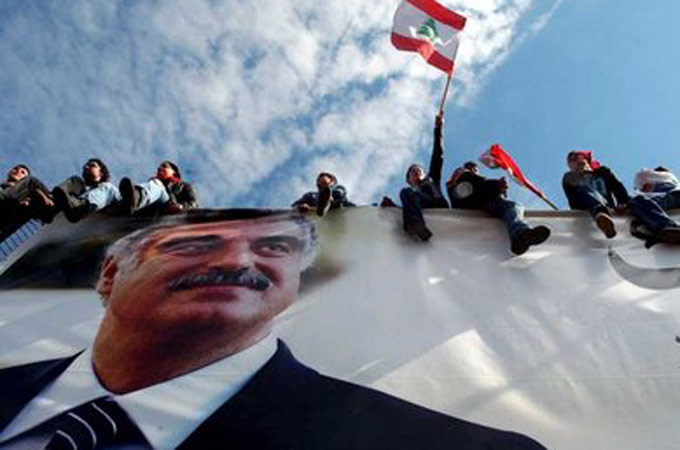Hariri tribunal judge appeals to suspects
Head of UN-backed tribunal probing murder of ex-Lebanon PM says suspects will get fair trial if they hand themselves in.

 |
| Hariri and 22 others died in a truck bombing in Beirut in February, 2005 [EPA] |
The president of the UN-backed tribunal investigating the assassination of Rafik Hariri, the former Lebanese prime minister, has called on the four suspects in the case to turn themselves in, promising they will get a fair trial.
In an open letter published on Thursday, the deadline following 30 days in which Lebanese authorities were given to search and arrest the suspects, Judge Antonio Cassese addressed the accused, informing them of the possibility of appearong via video-link during the court proceedings.
“If you do not wish to come to the tribunal in person, the option might be available – following the procedures in our rules – of appearing by video-link, thus participating in the proceedings without physically coming to The Hague,” Cassese said.
He went on to insist on the need for the accused to obtain legal counsel, and that “substantial funds have been earmarked” specifically for the defence team, in case they cannot afford it.
Two camps
In June, the Special Tribunal for Lebanon (STL) issued arrest warrants for four members of Hezbollah for alleged involvement in the February 14, 2005 truck bombing in Beirut that killed Hariri and 22 others.
The STL, which was established in 2007 under Chapter Seven in the UN mandate, has had a polarising effect on Lebanese domestic politics, dividing the country into two distinct camps; those who believe the STL is pushing forward a political agenda to bring down Hezbollah, and those who believe that the court is the only institution that will be able to objectively seek the truth.
The Shia movement Hezbollah and its March 8 allies currently dominate the Lebanese cabinet after members of the coalition resigned in January from the government then led by Saad Hariri, Rafik Hariri’s son, and leader of the March 14 coalition.
One of the reasons regarding the resignations was the controversy over March 14’s handling of the STL.
Hezbollah has denied any involvement in the assassination, saying that the investigation leading up to the indictments had been politically motivated ignored the possibility of investigating other suspects.
Hassan Nasrallah, the leader of Hezbollah, has repeatedly dismissed the tribunal as a US-Israeli conspiracy against his movement.
Since the publication of the indictments, which name Salim Ayyash, Mustafa Badreddine, Hussein Anaissi and Assad Sabra, Hezbollah has said it will not turn over the suspects.
Addressing Hezbollah’s accusations in his letter, Cassese said “any claim that the Tribunal is under the influence of some countries is simply preposterous”.
He said the accused could address the issue of the court’s legitimacy through their legal counsel.
“If you believe this tribunal is illegal or illegitimate, argue this point through legal counsel chosen by you – you will thus have your voice heard on this issue,” Cassese said.
‘Last resort’
Lebanese authorities handed over their report, explaining the methods and practices they took to try and apprehend the suspects, to the court two days prior to the August 11 deadline.
It is now up to Cassese to assess whether or not Lebanon has, to the best of its ability, worked in accordance with the STL’s rules and regulations.
“The confidential report will now have to be translated into English, and will include the details of the work and patrols the judicial authorities have carried out to show their compliance with the request,” said Dr Omar Nashabi, an expert in criminal justice and the editor of the justice section in al-Akhbar, a Lebanese newspaper.
“Most likely Cassese will accept the fact that the Lebanese authorities have fulfilled their role in terms of compliance.
“He has the option of giving an extended time period for the Lebanese authorities to co-operate, and then send a letter asking for their co-operation, but this is unlikely, especially since Najib Miqati, the Lebanese prime minister, has publicly stated Lebanon has fully complied with the STL request.
There are other possibilities however, which the judge can execute if he is unsatisfied with the report.
“If he is not satisfied, then the last resort would be for him to go to the UN Security Council, and there they will see what measures or sanctions they can take under Chapter 7,” said Nashabi.
“But there are other options before that, which include the time extension and official letter.”
Analysts predict that by mid-September the judge will decide if he will conduct the trial against the four accused in abstentia.